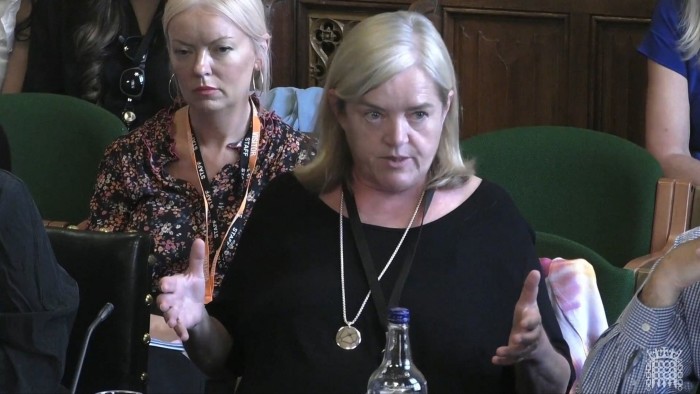Unlock the Editor’s Digest for free
Roula Khalaf, Editor of the FT, selects her favourite stories in this weekly newsletter.
Baroness Louise Casey has branded national data collection on grooming gangs a “disaster”, after a failure to measure crimes properly led to inaccuracies in records of group-based child sexual exploitation in England and Wales.
“The national data on grooming gangs is incomplete and unreliable. I would say that is putting it mildly,” she told MPs on the home affairs select committee on Tuesday.
“I think it’s particularly important if you are collecting those sorts of issues to get them 100 per cent right . . . my view is collect something or don’t collect something. For God’s sake don’t half collect it. That’s a bloody disaster frankly,” she added.
The remarks follow the release of a national audit on group-based child sexual exploitation (CSE) and abuse led by Casey on Monday.
The wide-ranging inquiry looked into the role of ethnicity in a historic grooming gangs’ scandal across England and Wales. A large proportion of the perpetrators were men from “Asian ethnic backgrounds”.
The audit estimated that 500,000 children a year are sexually abused, but was unable to accurately say how many cases of CSE occur due to faulty data, with the last survey into the issue taking place 12 years ago.
Sarah Kincaid, Home Office policy adviser, told the committee an estimated 17,000 children were victims of CSE each year.
Casey also called an absence of national data from the Department of Health “woeful”, emphasising the need for better data sharing between agencies as well as her call for making this action mandatory.
Mandatory sharing between all statutory safeguarding partners was one of Casey’s 12 recommendations, alongside collection of ethnicity and nationality data for all suspects in child sexual abuse and exploitation cases compulsory.
Casey argued that sharing data has never been cheaper or easier and said there are no technological reasons for a lack of transparency between police forces in spite of privacy concerns.
Kincaid reinforced the argument and said there is no need for a “digital overhaul” as new tools can be implemented into current systems in order for police forces to more effectively share data.
The committee also heard of the anger victims feel due to a lack of action to protect children, with Casey adding “it is clear” that this “heinous” crime is still happening today.
Casey said the speed of the report and her appearance at the committee a day after its publication reinforced to the public that it was being taken seriously and the 12 recommendations made would draw “a line in the sand”.
The audit follows a number of local inquiries into child sexual exploitation by groups of men having previously taken place in Birmingham, Oldham, Oxfordshire, Rochdale, Rotherham and Telford.
Downing Street accepted Casey’s call for a national inquiry and confirmed it would be time limited and build upon the independent inquiry led by Alexis Jay into child sexual abuse.




